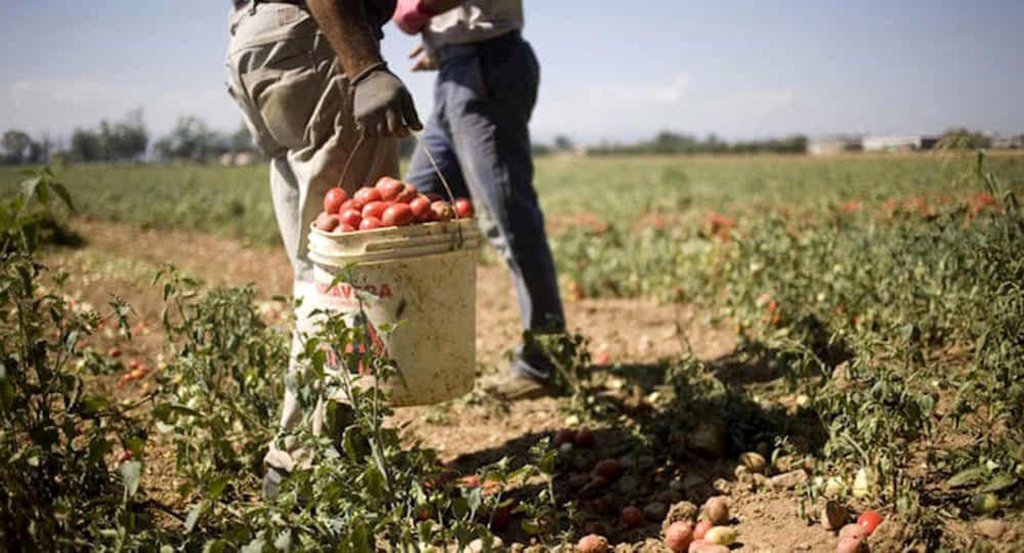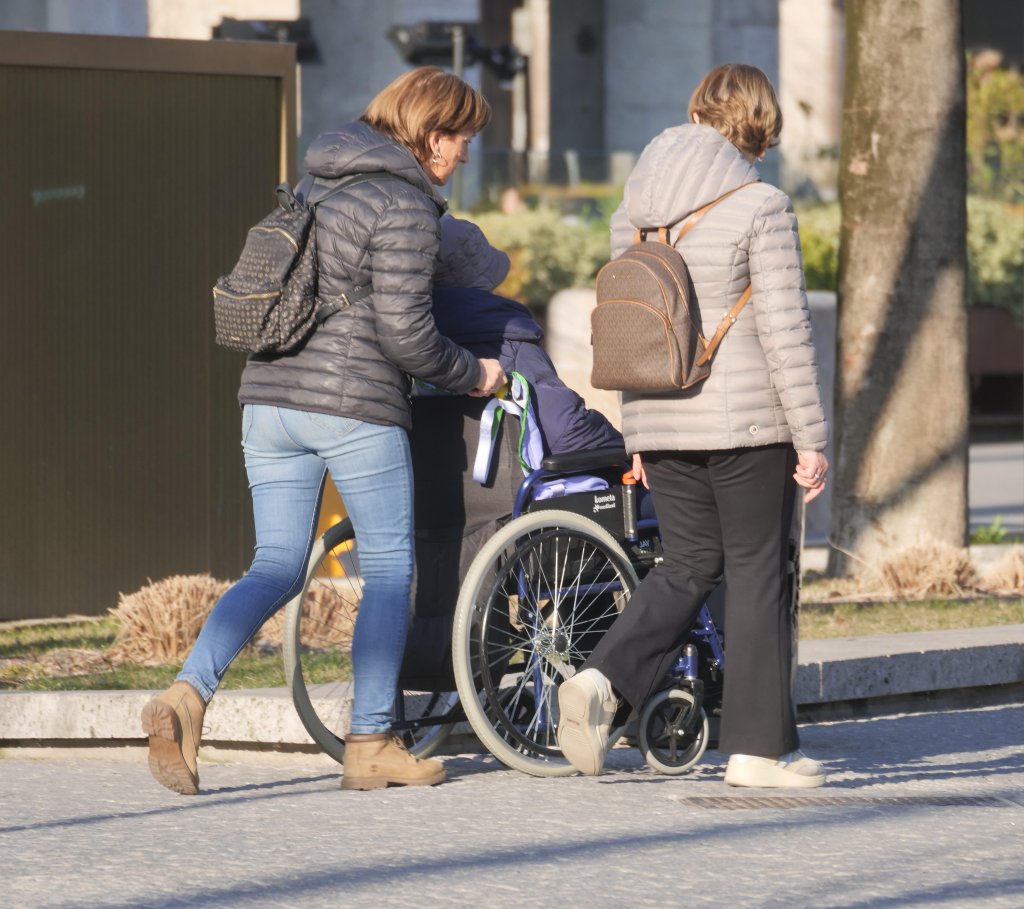Under Italy's new Decreto Flussi, nearly half a million work permits for non-EU workers will be allocated over the next three years across key industries, including transport, agriculture, construction, and manufacturing. A smaller number of work visas will be available to self-employed people, including freelancers and start-ups.
Italy’s new three-year Flow Decree for 2026–2028 expands legal channels for foreign workers, but rising cases of fraud and exploitation show the system remains vulnerable.
InfoMigrants breaks down the provisions of the three-year Flow Decree and what this means for you as a migrant worker.
What is the Flow Decree?
The Flow Decree (Decreto Flussi) is the Italian government’s plan that outlines how many non-European Union workers can enter Italy for work, and under what conditions. The Flow Decree is meant to bring more skilled workers into Italy through safe pathways to migration and strengthened cooperation with origin countries.
The latest decree for the period 2026-2028 was published on October 15, 2025, and covers rules for seasonal and non-seasonal workers as well as self-employed workers. There are also provisions set out for those seeking amnesty. Certain provisions were also set out for "out of quota" for certain groups (e.g., refugees, caregivers, stateless persons).
Over these three years, 497,550 work permits will be allocated, with about 164,850 work permits available each year.

The International Organization for Migration (IOM) praised the Italian government’s move to expand migration channels across different sectors and called the new three-year Flow Decree "not only a development win – it is a lifesaving measure."
"This is the kind of bold, forward-looking policymaking we urgently need. When countries expand regular migration channels, they not only respond to labor shortages but also protect people from falling into the traps of exploitation and irregular routes. Migration, when managed responsibly, can be a catalyst for economic growth," said IOM Director General Amy Pope in a statement.
More information about the 2026-2028 Flow Decree is published on the Italian Ministry of Labor and Social Policies website.
Read Also
Italy aims to regulate migration and not eliminate it, says interior minister
How will this affect me if I am a migrant worker or non-seasonal?
Non-seasonal permits will be made available for workers in the following sectors:
- Transport and logistics
- Metalwork and mechanics
- Tourism
- Agriculture and agri-food
- Construction
- Manufacturing
There are also additional permits per year for self-employed individuals, which include entrepreneurs, freelancers, artists, and start-ups.
Meanwhile, some quotas are reserved for specific groups, such as:
- Workers from countries cooperating with Italy on safe migration
- Workers of Italian descent in Venezuela or other listed countries
- Stateless persons and refugees
- Workers employed in family care and social-health assistance
Other new provisions for migrant workers:
- More sectors are included in the program
- More training will take place in countries of origin
- Stronger cooperation with governments to support safe and legal migration
- Incentives to bring in highly skilled workers
- Possibility to convert some study/training permits into work permits
- Faster application procedures through a digital pre-filling system
If an Italian employer wants to hire you as a migrant worker who qualifies under this scheme, your employer must submit the application. If you are from a country with an agreement with Italy, such as Algeria, India, Morocco, Senegal, Sri Lanka, Peru, Tunisia, and Ukraine, or are from countries where agreements are entered into during the three-year period, you may have priority.
Read AlsoItaly: Civil society campaign calls new migration decree a 'missed opportunity'
How will this affect me if I am a seasonal worker?
A seasonal worker is someone who comes to Italy for temporary work linked to a particular season tied to an activity, such as:
- Agriculture (harvesting, planting, farm work)
- Tourism (hotels, restaurants, summer resorts)
Reserved quotas will be allocated for:
- Workers from countries with migration agreements
- Seasonal workers who have already worked in Italy in the last 5 years
- Workers applying through major agricultural or tourism employer organizations
If you have already worked in Italy seasonally, your chances of returning increase, and you may get a multi-year seasonal permit. New workers must have an employer apply for them, but priority lists may help depending on your country of origin.
Read AlsoItaly: Growing discontent with Interior Ministry, as seasonal worker permits lag behind
How will this affect me if I am seeking amnesty or regularization?
The 2026–2028 decree provides special "out-of-quota" opportunities for irregular migrants in certain situations that include:
- Stateless persons and refugees who complete training
- People who studied or trained in Italy and want to convert their permit
- Workers in family care, social-health care, or assisting elderly/disabled people
- People from countries that have repatriation or migration cooperation agreements with Italy

If you are undocumented but working in domestic care, elderly assistance, or social-health support, you may have a legal path to obtain a work permit when your employer applies. Refugees and stateless people may also gain access through special training programs.
It is important to note that this is not a full amnesty for everyone, but targeted pathways for specific categories.
Read AlsoItaly: Lower House greenlights 2026-2028 flow decree
How will this affect me if I am an employer?
As an employer, you have the following obligations and must be aware of the following dates:
- Pre-fill applications online from 23 October to 7 December each year
- Submit applications on scheduled opening days (click-days):
12 January – seasonal workers in agriculture
9 February – seasonal workers in tourism
16 February – non-seasonal workers who are citizens of countries that have cooperation agreements on migration matters with Italy, or will sign them during the period of validity of the decree ;
18 February – for other non-seasonal subordinate workers
- Submit documents proving wages, housing, and the need for foreign workers
- Hire through legal processes and respect labor contracts
Applications terminate automatically if the employers don't confirm applications under the following conditions:
- They do not enter the quota by December 31
- The visa is not issued within 6 months
- Required documents are incomplete
Deception and fraud
A recent annual report from an anti-trafficking hotline described 2024 as "the year of deception", highlighting a sharp rise in fraud connected to Italy’s Flow Decree.
During the second half of 2024, intermediaries increasingly posed as agents or employers, asking migrant workers to pay money for help with applications, work contracts, or visas. After receiving payment, many disappeared, leaving hopeful workers without documents, without work, and at serious risk of exploitation.

At least 139 migrants, mostly from Tunisia, Morocco, India, and Egypt, were identified as victims of this type of fraud. The actual number is likely to be higher, indicative of a much larger, widespread problem. As a result of these scams, cases of labour exploitation rose sharply, accounting for 80 percent of all exploitation cases handled by the hotline, compared with 16% for sexual exploitation.
